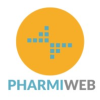
PhD Positions in Physics of soft matter / scattering / machine learning
Intro The Schreiber Group at the University of Tübingen works on the physics of molecular and biological materials using X-ray and neutron scattering as well as machine learning tools.
Currently we have several PhD positions available. Candidates with experience or interest in one of the following four fields are especially encouraged to apply : 1) Neural networks and machine learning strategies to analyse scattering data.
2) Perovskite thin films for photovoltaics (growth, optical spectroscopy and X-ray scattering). 3) X-ray photon correlation spectroscopy (XPCS) for the dynamics of proteins.
4) Quasi-elastic neutron scattering (QENS) for the dynamics of proteins. Tasks You will be part of challenging interdisciplinary projects that are integrated into major national and European research consortia such as the DAPHNE (DAta for PHoton and Neutron Experiments) NFDI consortium.
We offer well-equipped laboratories, a highly collaborative international environment and affiliation with the Cluster of Excellence "Machine Learning : New Perspectives for Science" funded by the DFG and hosted at the University of Tübingen.
You will receive excellent training and for all our projects we offer the opportunity to perform research at international large-scale facilities (such as synchrotrons and neutron sources).
Details on our research as well as publications and background information can be found on our website. Requirements You should have good communication skills, attention to detail, and flexibility to work both independently as well as in a team.
You should hold a diploma / master degree in physics, physical chemistry, material science or a related field. For project 1) with computational focus (machine learning / artificial intelligence) we encourage also applications from candidates with a degree in computer science.
Benefits The University of Tübingen has 28,000 students and more than 500 years of academic tradition. It has national excellence status as is ranked in the top 100 universities worldwide.
You will benefit from a variety of training opportunities and language courses as well as the university’s graduate academy.
Closing Applications should include a cover letter - written in English or German language - describing research interests, achievements, motivation and capabilities;
curriculum vitae; academic certificates; names and email addresses of two professional references (e.g., current or previous research advisors).
The positions are available immediately. Salary will be determined according to the German collective wage agreement in public service.








